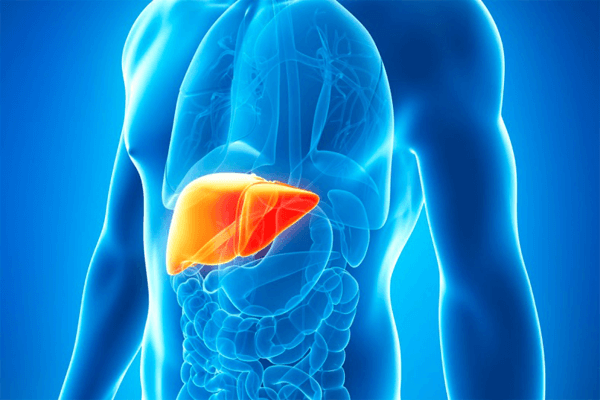Elevated Liver Enzymes: Everything You Need To Know
Elevated liver enzymes may be a sign that a person’s liver is not working properly. Damaged or inflamed liver cells release enzymes into the bloodstream, which a blood test will detect.
WHAT IS ELEVATED LIVER ENZYMES?
Liver enzymes are essentially enzymes that catalyze biochemical reactions in the liver, helping the liver to undertake the metabolic function of substances and liver enzymes, including:
- Alanine transaminase (ALT or SGPT)
- Aspartate transaminase (AST or SGOT)
- Gamma-glutamyl transferase (GGT)
- Alkaline phosphatase (ALP)
Normally, when liver cells die due to the aging process, some liver enzymes will be released into the blood at concentrations below 35 UI / L.
Due to a certain cause, the more destruction of liver cells causes the concentration of liver enzymes in the blood to increase. If the liver enzyme level increases from one to two times the normal value, it is the mild grade, 2 to 5 times the moderate level, and an increase of more than 5 times is the severity level.

CAUSES ELEVATED LIVER ENZYMES
If a person’s blood test results show elevated liver enzymes, a doctor will investigate possible underlying causes. They may do further tests in addition to asking about a person’s lifestyle and dietary habits.
Fatty liver disease: The most common cause of elevated liver enzymes is fatty liver disease. Research suggests that 25–51% of people with elevated liver enzymes have this condition.
Metabolic Syndrome Disorder: The metabolic syndrome is a group of symptoms that increase the risk of heart disease. These symptoms include: high blood sugar, high blood pressure, overweight, high cholesterol. Your doctor may test people with one or more of these symptoms to find the cause of the high liver enzymes.
Due to virus: There are 5 viruses that cause hepatitis: A, B, C, D, E. When entering the body, these viruses will destroy the liver cells. In which, hepatitis B and C viruses are both capable of causing acute and chronic hepatitis, increasing the risk of liver cancer and cirrhosis.
Alcohol abuse: The cause of high liver enzymes can be due to excessive alcohol consumption, damage and impaired liver function. In addition to alcoholic liver disease, drinking a lot of alcohol also affects other organs such as the stomach, heart, nerves …
Eat toxic foods: Dirty, moldy, preservative foods … all contain a certain amount of toxins and aflatoxin, causing hepatitis, increased liver enzymes, even liver cancer.
Improper use of drugs: Most pain relievers, anti-inflammatory, anti-tuberculosis drugs, statins … are metabolized in the liver. Having high levels of liver enzymes can be caused by overuse of drugs, causing burden and damage to the liver.
Biliary tract diseases: gallstones, biliary tract infections, biliary tract tumors …
Due to other diseases: Patients with iron overload, autoimmune hepatitis, malaria or some bile related diseases (cholecystitis, cholangitis, gallstones in the liver, congenital atrophy biliary birth or abscess, …) may also cause liver enzymes.
SYMPTOMS OF ELEVATED LIVER ENZYMES
The signs of elevation of liver enzymes are often not clear, the more pronounced the symptoms of elevated liver enzymes become. Symptoms include:
- The patient presents with anorexia, vomiting and. nausea, stomach pain.
- Low-grade fever, fatigue.
- Lower right rib pain: When liver enzymes are elevated, the patient will feel a dull ache in the right lower abdomen.
- Rashes: Impaired liver function causes toxins to accumulate in the body, causing itching on the skin.
- Light colored stools, dark urine: High liver enzymes are common due to bile obstruction. Bile obstruction prevents bilirubin from entering the digestive tract and excreted in the urine, causing stools to discolor and dark urine.
- Jaundice: This is the most characteristic symptom of high liver enzymes. However, when you notice a change in skin color, the disease is also alarming.
Since symptoms may not be apparent with minimal elevation of liver enzymes, the easiest way to detect elevated liver enzymes is to have a blood test.
THE CONSEQUENCES OF ELEVATED LIVER ENZYMES
If the elevation of liver enzymes occurs long term without treatment, complications such as cirrhosis, liver cancer …
High liver enzymes are a warning sign of liver problems such as hepatitis, liver cancer and other liver damage. Even elevated liver enzymes due to toxicity can lead to acute liver failure, liver coma and death.
Persistent high liver enzymes can lead to liver cancer.

TREATMENT FOR ELEVATED LIVER ENZYMES
Treatment of high liver enzymes will focus on controlling the underlying condition that causes the high levels to rise.
Treatments for some of the more common causes that increase AST or ALT levels include:
Fatty liver disease: People can work with their doctors to treat NAFLD (non-alcoholic fatty liver) by losing weight. Your doctor may advise a person to make lifestyle changes to lose weight, such as: exercising more, eating healthier, burning more calories than you consume, talking to a registered dietitian or even Even a personal trainer can help someone on the right track with their weight loss plan. If a person has fatty liver disease from drinking alcohol, their doctor will assist them in reducing their alcohol intake. In addition to lifestyle and dietary changes, support products such as vitamin E, lecithin, …
Metabolic Syndrome: Treatment of metabolic syndrome includes: losing weight, exercising more, eating healthy, balanced, managing blood sugar, reducing stress levels. Lifestyle changes that can help a person manage stress include: exercise, meditation, yoga, journaling
Hepatitis: the treatment for hepatitis depends on the acute or chronic stage. Your doctor may recommend the following treatments for acute hepatitis: rest, drink plenty of fluids, and avoid alcohol. Treatment for chronic hepatitis usually includes antiviral medications. Both phases can coordinate a number of solutions to support lowering of liver enzymes: phylanthus niruri, silymarin, arginine, L-ornithin L-aspartate, lecithin
Excessive alcohol or drug abuse: Treatment for an alcohol or drug use disorder includes: behavioral therapy, medication, or supportive strategies. Anyone who feels as if their use of alcohol or drugs is causing health problems or interfering with everyday life should talk to their doctor.
PREVENTION FOR ELEVATED LIVER ENZYMES
Proper diet: Abstain from alcohol, beer and other alcoholic beverages, do not smoke, pipe tobacco and stimulants. You should regularly eat foods that help lower liver enzymes and protect liver function such as foods high in vitamins A, B1, B2, and B6 found in fresh milk, egg yolks, liver, cereals, meat. Lean, green vegetables, drink more fruit juices because the fruit contains a lot of glucose, helping to filter out toxins from the liver. Give up alcohol today if possible, otherwise limit alcohol, drink no more than 1 bottle / can of beer or 1 glass of wine or 1 glass of spirits (40-45 degrees alcohol) per day; limit the use of “drinking bait” made from unsafe foods, especially fried and baked.
Reasonable resting regime: Get enough sleep, sleep early, avoid staying up late to work stressful.
Drink plenty of water: Drinking water helps to speed up blood circulation and enhances the functioning of liver cells, helping the process of excreting toxins from the body faster. Every day should drink at least 1.5-2 liters of water.
High liver enzymes can indicate a serious liver disease, the hallmarks of elevated liver enzymes are often not obvious when the liver enzymes are low, to determine the easiest way is to check through liver enzyme tests. People with liver disease, viral infection that causes hepatitis should check every 6 months to screen for liver enzymes and liver problems if there is a bad change.
References:
Cirrhosis. (n.d.).
https://www.niddk.nih.gov/health-information/liver-disease/cirrhosis
Diagnosing hepatitis C. (n.d.).
https://liverfoundation.org/for-patients/about-the-liver/diseases-of-the-liver/hepatitis-c/diagnosing-hepatitis-c/
Elevated liver enzymes. (2011).
https://www.aafp.org/afp/2011/1101/p1010.html
Fatty liver disease. (2017).
https://medlineplus.gov/fattyliverdisease.html
Oh, R. C., et al. (2017). Mildly elevated liver transaminase levels: Causes and evaluation.
https://www.aafp.org/afp/2017/1201/p709.html
Prevention and treatment of metabolic syndrome. (2016).
https://www.heart.org/en/health-topics/metabolic-syndrome/prevention-and-treatment-of-metabolic-syndrome
Treating hepatitis C. (n.d.).
https://liverfoundation.org/for-patients/about-the-liver/diseases-of-the-liver/hepatitis-c/treating-hepatitis-c/
Treatment for alcohol problems: Finding and getting help. (2014).
https://www.niaaa.nih.gov/publications/brochures-and-fact-sheets/treatment-alcohol-problems-finding-and-getting-help
Treatment for cirrhosis. (2018).
https://www.niddk.nih.gov/health-information/liver-disease/cirrhosis/treatment
Mayo Clinic Staff. (2017). Elevated liver enzymes: Causes.
mayoclinic.org/symptoms/elevated-liver-enzymes/basics/causes/sym-20050830
Mayo Clinic Staff. (2017). Alcoholic hepatitis: Symptoms & causes.
mayoclinic.org/diseases-conditions/alcoholic-hepatitis/symptoms-causes/syc-20351388
Mayo Clinic Staff. (2017). Autoimmune hepatitis: Symptoms & causes.
mayoclinic.org/diseases-conditions/autoimmune-hepatitis/symptoms-causes/syc-20352153
Mayo Clinic Staff. (2017). Cytomegalovirus (CMV) infection: Symptoms & causes.
mayoclinic.org/diseases-conditions/cmv/symptoms-causes/dxc-20315449
Mayo Clinic Staff. (2017). Mononucleosis: Causes & symptoms.
mayoclinic.org/diseases-conditions/mononucleosis/symptoms-causes/syc-20350328
What is viral hepatitis? (2016).
cdc.gov/hepatitis/abc/
Oh, Robert C., et al. (2011). Causes and Evaluation of Mildly Elevated Liver Transaminase Levels.
aafp.org/afp/2011/1101/p1003.html

